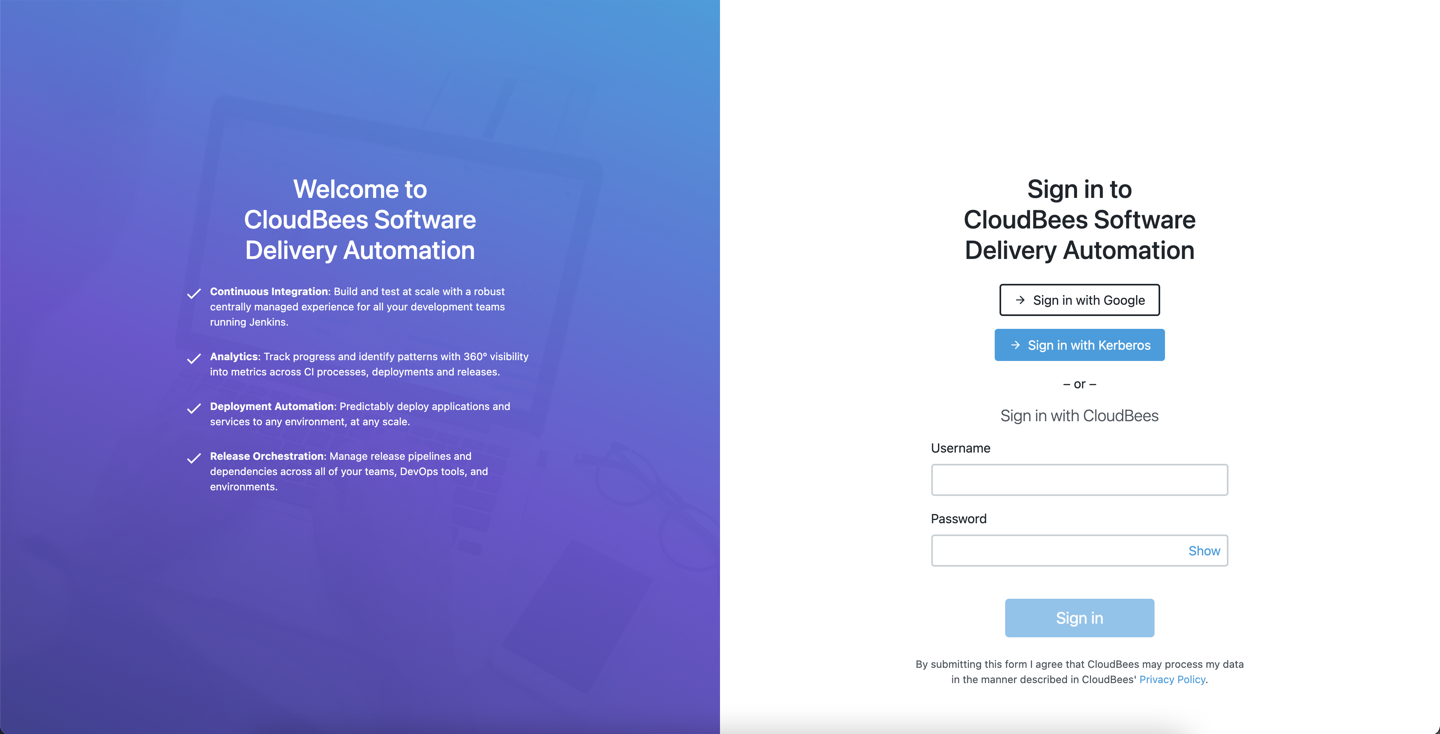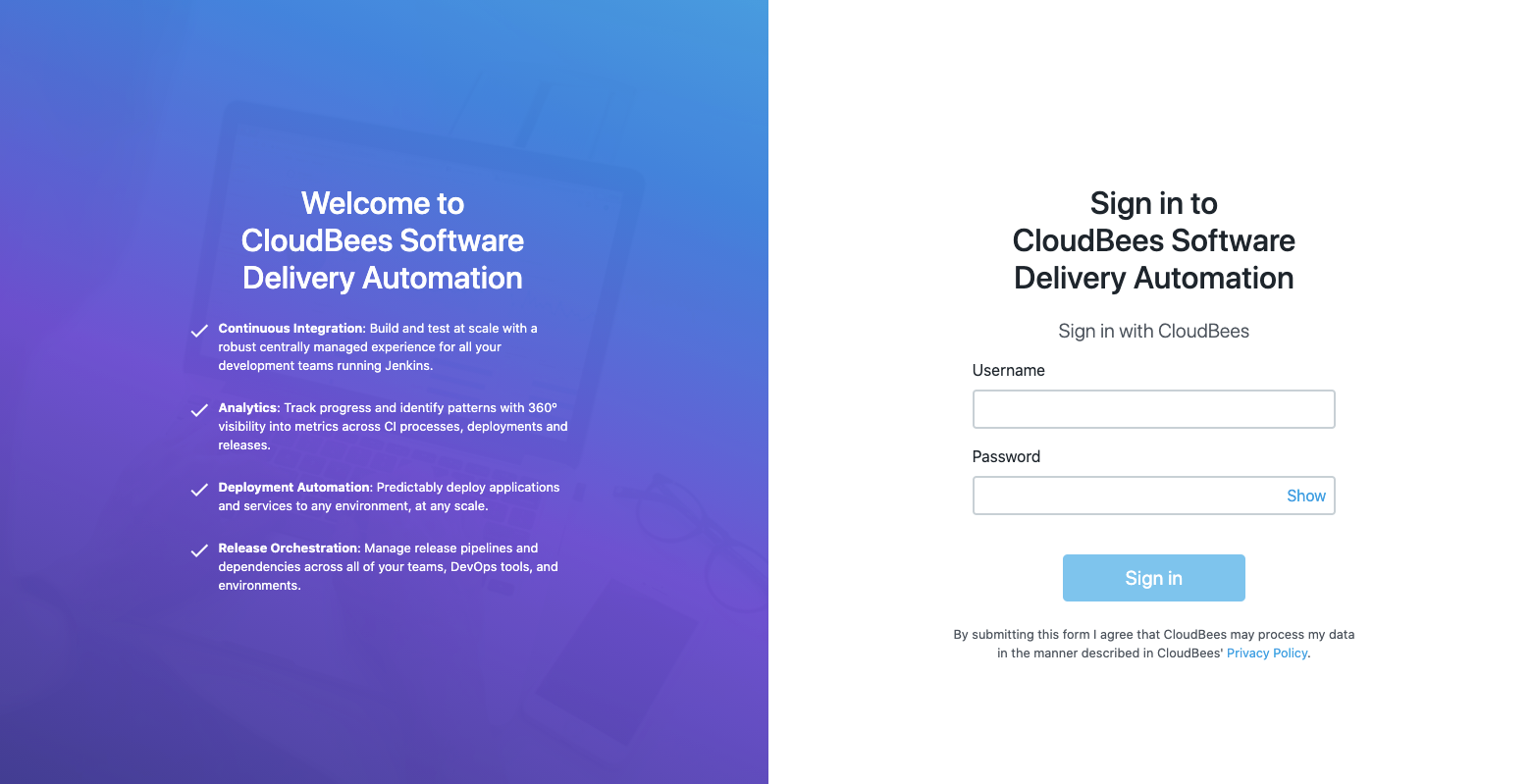Enter https://<cloudbees-cd-server>/flow/ in a browser window, where <cloudbees-cd-server> is the CloudBees CD/RO server IP address or host name. One of the following sign-in pages displays, based on the server’s single sign-on (SSO) setting. If you ever need to sign in as a different user, simply enter the credentials for that user.
SSO Enabled
The sample sign-in page below is SSO-enabled with GSuite and Kerberos SSO. Your page may be enabled with other SSO providers such as Okta.

From here, use one of the following ways to sign in:
-
Select Sign in with Google: The user is authenticated via the Google identify provider, and if successful, is redirected to their home page.
-
Select Sign in with Kerberos: This system has additionally been enabled with Kerberos SSO. The user is authenticated, and if successful, is redirected to their home page.
-
Enter a Username and Password for local authentication. Then select Sign in. If successful, the user is redirected to their homepage.
SSO Disabled
This sign-in page has SSO disabled:

From here, use one of the following ways to sign in:
-
The user enters a Username and Password and then clicks Sign in. If successful, the user is redirected to their homepage.
For a new installation, the default admin account user name is admin, and the password is changeme. You should change the default admin password as soon as possible.
|
About single sign-on
Once you sign in to your system with your domain credentials, CloudBees CD/RO single sign-on detects them and uses them to sign in on your behalf. Simply navigate to https://<cloudBees-cd-server>/flow/ and click the Single Sign-On link. The user’s home page appears.
If you want to continue again with your own domain identity on subsequent sessions, click the Single Sign-On link. This link signs you in without prompting you for a username and a password.
For information about enabling single sign-on at your enterprise see SAML single sign-on or Kerberos single sign-on.